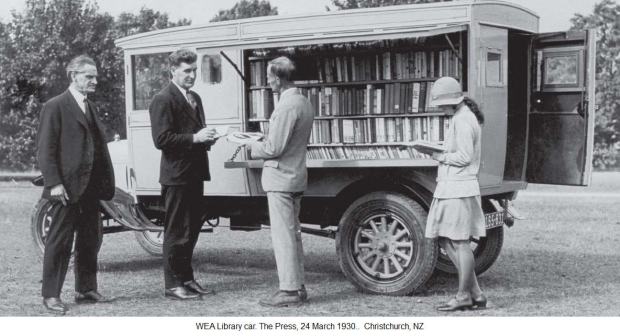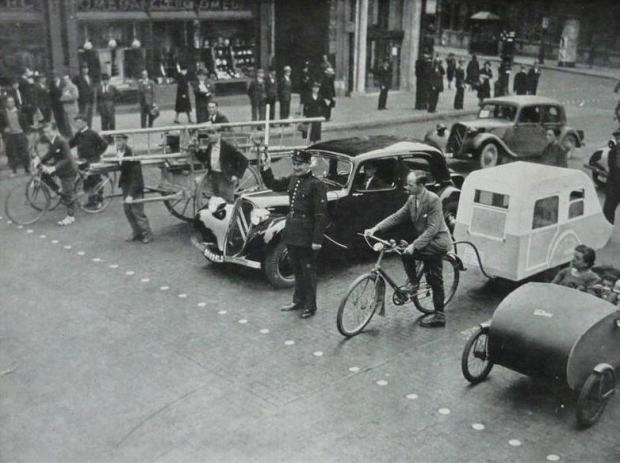Eric Britton, Paris, 17 March 2017. This posting originally appeared here on 8 December 2014. It was for various reasons not followed up at the time, but now it becomes a far more important consideration since the journal of World Transport Policy & Practice is threatened with disappearance unless a modest grant can be secured to permit continuation. Have a look. Maybe you have some ideas or leads for us. Contact: eric.britton@ecoplan.org. T. +336 5088 0787. Skype: newmobility
Unburying hidden treasures from the Journal: 1995-present
We could use a bit of help to get the following job done. It has to do with a new collaborative program about to get into full swing in 2015 — The Archives of World Transport Policy & Practice (WTPP) under development at https://worldtransportarchives.wordpress.com. The goal of this new project is to see if we can, with a little help from
our friends, create a comprehensive, easy-to-use, free platform offering ready access to the full contents of the close to seventy editions of the Journal of World Transport Policy & Practice that have published under the leadership of Founding Editor John Whitelegg since 1995, but which at present technology are a bit isolated. The present article provides some first background on this project in process. If you might be interested to lend a hand, please get in touch and we can talk about it.
Journal of World Transport Policy and Practice: At the starting line
The Journal of World Transport Policy & Practice first hit the street with Vol. 1, No. 1 in 1995, offering a first collection of articles vigorously contesting mainstream thinking in the sector. It included “The well travelled yoghurt pot” by Stefanie Böge, “The end of the urban freeway” by Peter Newman, “Urban transport policy paradoxes in Australia” by Paul Mees, “How Amsterdam plans to reduce car traffic” by Leo Lemmers, “New roads generate new traffic” by Rudolf H.H. Pfleiderer and Martin Dieterich, “Violence and the car” by Helmut Holzapfel, and “Living without a car” by Michael Glotz-Richter. (To see how they stand the test of time, click here.)
That first edition, now twenty long years ago, opened with an editorial by our founding editor John Whitelegg in which he set the stage for what was to follow by reminding us that:
World Transport Policy & Practice is a quarterly journal which provides a high quality medium for original and creative work in world transport. WTPP has a philosophy based on the equal importance of academic rigour and a strong commitment to ideas, policies and practical initiatives that will bring about a reduction in global dependency on cars, lorries and aircraft.
WTPP has a commitment to sustainable transport which embraces the urgent need to cut global emissions of carbon dioxide, to reduce the amount of new infrastructure of all kinds and to highlight the importance of future generations, the poor, those who live in degraded environments and those deprived of human rights by planning systems that put a higher importance on economic objectives than on the environment and social justice.
The Journal embraces a different approach to science and through science to publishing. This view is based on an honest evaluation of the track record of transport planning, engineering and economics. All too often, these interrelated disciplines have embraced quantitative, elitist or mechanistic views of society, space and infrastructure and have eliminated people from the analysis.
Many of the issues raised within the transport debate do not fit into the narrow and stultifying disciplinary compartments that characterize science and Society in the developed world. This journal is topic and issue-based and will encourage as many contributions as possible from as many perspectives as possible.
Many of the issues raised will be controversial and this journal will publicize material from all sides of the debate. There is a solution to our global environment and local environmental problems, and there is such a thing as a sustainable city sustainable region and a sustainable community. Solutions are more likely to emerge from vigorous debate, dissent and replies than they are from set pieces on transport economics, transport geography, transport engineering or traffic science.
To help it to reach a wide readership, encompassing advocates and activists as well as academics and advisers, WTPP is available free of charge as PDF files on the internet.
That was true back in 1995 and is still right in the mainstream of Journal policy today. It is indeed what we are all about.
It is now 2015 and looking back this has been an exciting, encouraging and often very challenging association. Over this time the Journal and its advocates have gradually moved from being very much a voice in the wilderness and now are stepping right into the critical mainstream of policy, practice and thinking in the sector. Which is exactly where we belong today.
What are the World Transport Archives — and how do they work
After 20 years of publication with seventy editions already in circulation, offering close to three hundred carefully selected original articles on a very wide variety of subjects by more than one hundred distinguished contributors from every continent on the planet. An extremely valuable and unique resource, but . . .
A book or journal is not only a valuable source of information when have it or its contents in hand, but to an extent and over time it can also work as a kind of prison. This may not be immediately self-evident. However if you look closely you will notice that once something gets published and a few years pass, in many cases the individual articles tend, no matter how brilliant and insightful, all too often to get lost in the rush of time. Google and the other search engines are useful in some cases, but not in all. And particularly if we are talking about accessing a collection most of which exists in an older and somewhat closed format. Which is precisely what this project is all about.
If you go to the existing WTPP archive, created some years back at http://www.eco-logica.co.uk/WTPPdownloads.html, you will find a free depository of all past volumes of the journal, where it is possible to call up any of the editions published over the last twenty years. Which is a good thing, but also comes with some serious functional limitations.
The original WTPP archives stores the volumes in PDF form, they are thus not available to be searched by most search engines. As such they become a sort of lost continent.
The new archives are opening up this silent world by transforming every line and word into a form which can be easily searched and accessed. There are several important steps in this process (and it is here where we need help).
The WTPP Archives are intended to serve all those who may have missed these articles and their valuable insights the first time around, and in particular younger researchers, academics, activists, the media and people working with transportation/environment/cities groups and agencies in cities and countries on all continents. And also our readers who may distantly recall something that would like to check out but cannot conveniently to now.
Help wanted
The Open Archives, like the Journal itself, are to be freely available, and provided and supported by volunteers who believe in the power of open systems and collaborative problem-solving. This requires time and work, but for the diligent person interested in the challenges that the Journal addresses, this can be an informative and rewarding task.
The first step in the creation of the Open Archives is to transfer all the exiting PDF files to searchable form. The text and graphics in many case have to be formatted to ensure they make a comfortable read. This is a rather fussy process which is getting underway and for which, if you are a volunteer, we can always use your help.
As to the search tools if you turn to the working site here you will see that the present collection permits the reader to search the entire content of the archives: by key word, exact date, category/topic and year/month. You can see these search tools just to the right of the opening page of the Open Archives site. We also are working on a special Combined Search Engine which you will find there and which, though still needing additional work, gives the reader one more useful way to find what they are looking for.
It is our hope that these archives will serve to open up and reinforce the messages, insights and values that have been set out by more than one hundred leading thinkers and authorities within these virtual covers now and in the years ahead. If you have ideas, time or funds to help us do this, it would be great to hear from you.
Eric Britton,
Founding member of the Editorial Board.# # #
About John Whitelegg:
Founder and Managing Director of Eco-Logica, John Whitelegg is Visiting Professor of Sustainable Transport at Liverpool John Moores University, and founder and editor of the Journal of World Transport Policy and Practice. Research interests encompass transport and the environment, definition of sustainable transport systems and a sustainable built environment, development of transport in third world cities focusing on the relationships between sustainability and human health, implementation of environmental strategies within manufacturing and service industry and development of environmental management standards. He has published widely on these topics. John is active in the Green party of England and Wales and is the national spokesperson on sustainable development.
About Eric Britton:
Eric Britton
13, rue Pasteur. Courbevoie 92400 FranceBio: Founding editor of World Streets (1988), Eric Britton is an American political scientist, teacher, occasional consultant, and sustainability activist who has observed, learned, taught and worked on missions and advisory assignments on all continents. In the autumn of 2019, he committed his remaining life work to the challenges of aggressively countering climate change and specifically greenhouse gas emissions emanating from the mobility sector. He is not worried about running out of work. Further background and updates: @ericbritton | http://bit.ly/2Ti8LsX | #fekbritton | https://twitter.com/ericbritton | and | https://www.linkedin.com/in/ericbritton/ Contact: climate@newmobility.org) | +336 508 80787 (Also WhatApp) | Skype: newmobility.)
WORLD STREETS __ A New Mobility Action Plan for 2022
Unburying hidden treasures from the Journal: 1995-2015
We could use a bit of help to get the following job done. It has to do with a new collaborative program about to get into full swing in 2015 — The Archives of World Transport Policy & Practice (WTPP) under development at https://worldtransportarchives.wordpress.com. The goal of this new project is to see if we can, with a little help from  our friends, create a comprehensive, easy-to-use, free platform offering ready access to the full contents of the close to seventy editions of the Journal of World Transport Policy & Practice that have published under the leadership of Founding Editor John Whitelegg since 1995, but which at present technology are a bit isolated. The present article provides some first background on this project in process. If you might be interested to lend a hand, please get in touch and we can talk about it.
our friends, create a comprehensive, easy-to-use, free platform offering ready access to the full contents of the close to seventy editions of the Journal of World Transport Policy & Practice that have published under the leadership of Founding Editor John Whitelegg since 1995, but which at present technology are a bit isolated. The present article provides some first background on this project in process. If you might be interested to lend a hand, please get in touch and we can talk about it.
View original post 1,234 more words












